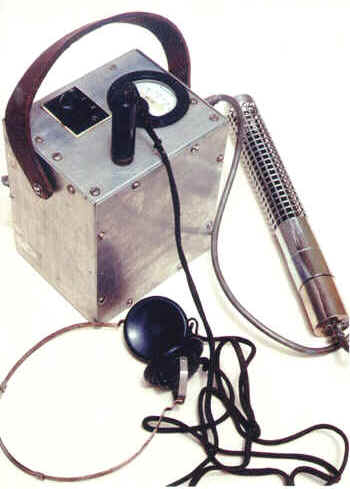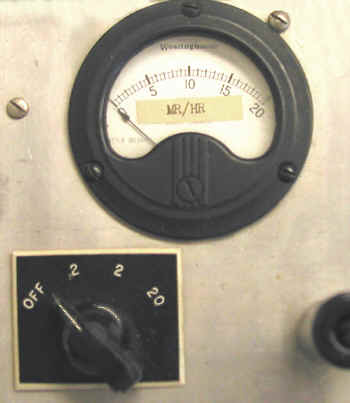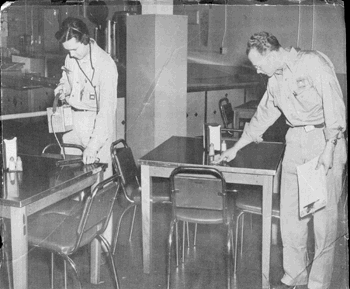Walkie Talkie from ORNL (ca. 1945-1949)

The "walkie talkie" is a relatively small (4.5" x 5" x 6") light survey instrument developed during or very shortly after WW II. It employs a hand-held glass wall GM tube capable of detecting gammas and high energy betas. It had three ranges: 0-0.2 mR/h, 0-2 mR/h and 0-20 mR/h. A similar instrument, the “walkie squawkie,” used a speaker rather than headphones.


The photograph shows a Walkie Talkie being used to search for contamination on a table in the cafeteria of Oak Ridge National Laboratory (ca. 1946-1949).
The date on the calibration curve (3-3-49) suggests that this survey instrument (built at what is now Oak Ridge National Laboratory) dates from the mid to late 1940s. The initials on the curve stand for H.J. Wyrick of the health physics calibration section.
Donated by Bill Shinpaugh.
Reference
Davis , D.M., Health Physics Division Instrument Manual ORNL 332, June 1949, p. 46.
